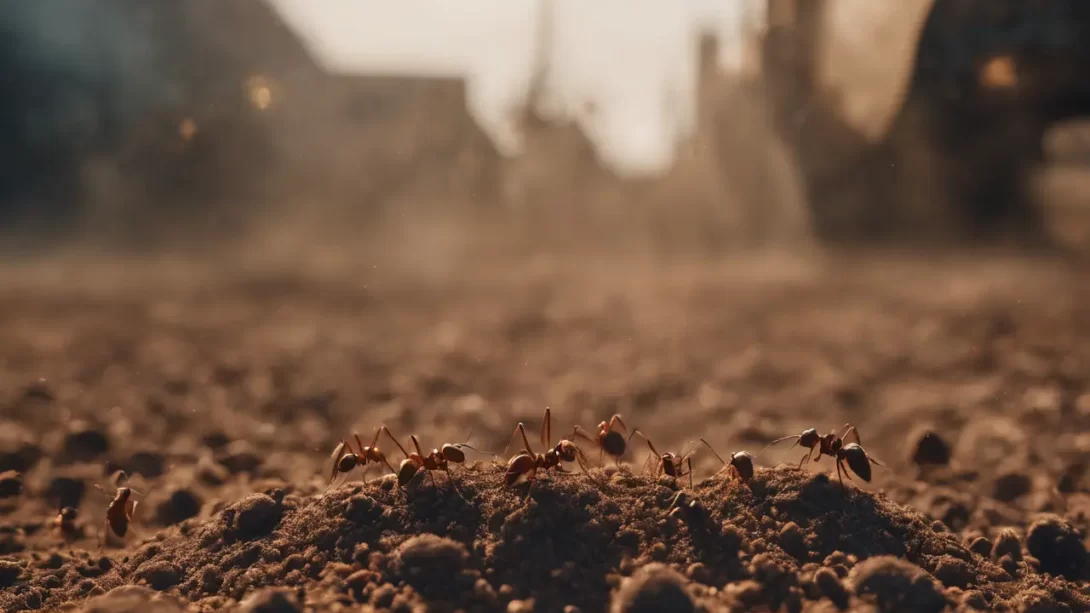Dealing with ants is a common household challenge. These tiny invaders can quickly become a nuisance, leading many to seek effective control methods. Rubbing alcohol is often touted as a potential solution for ant infestations. This article aims to explore the efficacy and safety of using rubbing alcohol to kill ants, offering insights for those in search of effective home remedies.
- Ortho Home Defense Insect Killer for Indoor & Perimeter2 is a bug killer spray that kills the toughest home invading insects, including ants, cockroaches, spiders, fleas, ticks, scorpions, earwigs, silverfish, and periodical cicadas (as listed)
- Provides a long-lasting bug barrier of up to 12 month protection (against ants, roaches, and spiders indoors on non-porous surfaces)
- Apply this pesticide anytime as a preventative treatment or after you see evidence of insect activity
- Use this pest control spray with confidence indoors (kitchens, bathrooms, doors and windows) and outdoors (perimeter of foundations, patios and decks, garages) wherever insects are a recurring problem
- The easy-to-use continuous spray Comfort Wand helps you control insects easily and accurately without any bending, pumping, or hand-fatigue
Ants and Infestations
Ants are one of the most common insects found in and around homes. Species like carpenter ants, sugar ants, and fire ants each present unique challenges. Ant infestations often occur when ants enter homes in search of food or shelter. Once inside, they can be difficult to control due to their large numbers and the hidden nature of their nests. Understanding the behavior and biology of ants is crucial in effectively addressing infestations.
Rubbing Alcohol as an Ant Killer
Rubbing alcohol, or isopropyl alcohol, is known for its disinfectant properties but is also considered a contact insecticide. When applied directly to ants, rubbing alcohol can dehydrate and suffocate these insects, leading to their demise. Its effectiveness stems from its ability to penetrate the exoskeleton of ants and rapidly evaporate, causing physical trauma to the insects.
In comparison to other home remedies and commercial ant killers, rubbing alcohol acts quickly and can be effective in killing individual ants or small groups on contact. However, its effectiveness as a comprehensive ant control solution varies. The success of rubbing alcohol in ant control largely depends on the scale of the infestation and the ability to directly apply the alcohol to the ants.
How to Use Rubbing Alcohol to Control Ants
Using rubbing alcohol to combat ant infestations involves a few simple steps. Here’s a guide to effectively using rubbing alcohol as an ant control method:
- Preparation: Mix a solution of equal parts rubbing alcohol and water. Higher concentrations of alcohol can be more effective, but they also increase the risk of damaging surfaces or harming plants.
- Application: Use a spray bottle to apply the solution directly onto the ants or in areas where ants are frequently observed. This can include trails, entry points, and near nests if visible.
- Targeting Nests: If the location of the ant nest is known, carefully applying the alcohol solution can be more effective. However, caution is advised to avoid unnecessary damage or risks.
- Regular Reapplication: For ongoing issues, regular application may be necessary, as rubbing alcohol only kills on contact and doesn’t provide a residual effect.
- Attracts & Kills – Kills common household ants including acrobat, crazy, ghost, little black, odorous house, pavement, and other sweet-eating ants
- Kills the Ants You See & the Ones You Don’t – As worker ants discover the bait, they share it with the rest of the colony to eliminate them all
- Works Fast – You should see a significant decrease in the number of ants visiting the bait stations within just a few days
- Ready to Use – Place the bait stations, watch it attract ants, and eliminate the entire colony
- Use Throughout Your Home – Place stations near areas where you’ve seen ant activity including along baseboards, in corners, on counters, and more
Safety and Precautions
While rubbing alcohol is a common household item, it should be used with caution, especially as a pesticide:
- Health and Safety: Avoid inhaling fumes and ensure good ventilation when using rubbing alcohol. Wear gloves and avoid skin contact.
- Risk to Surfaces and Plants: Test the alcohol solution on a small area first, as it can damage certain surfaces and harm plants.
- Pets and Children: Keep pets and children away from areas where alcohol has been applied until it has completely dried.
- Storage and Handling: Store rubbing alcohol securely and away from heat sources, as it is highly flammable.
Limitations and Alternative Solutions
While rubbing alcohol can be effective in killing individual ants or small groups, it has limitations as a long-term ant control solution. One of the key limitations is that it does not affect the colony or the queen ant, which are crucial for completely eradicating an infestation. Additionally, rubbing alcohol does not provide a residual effect, meaning it only kills ants that come into direct contact with it.
For more comprehensive ant management, consider the following alternatives:
- Ant Baits: These are designed to be carried back to the nest, targeting the colony and the queen. Ant baits can provide a more lasting solution to infestations.
- Diatomaceous Earth: A natural powder that causes dehydration in insects, it can be effective when sprinkled in areas where ants are active.
- Essential Oils: Some, like peppermint and tea tree oil, are known to repel ants. They can be used to create barriers at entry points.
- Professional Pest Control: For severe infestations, seeking professional help can be the most effective course of action.
Integrating these methods with regular cleaning, proper food storage, and sealing entry points can create a more effective strategy against ants.
Conclusion
Rubbing alcohol can be a useful tool for immediate and direct ant control, particularly for killing visible ants on surfaces. However, its limitations mean it should be part of a broader ant control strategy rather than the sole method of eradication. By combining rubbing alcohol with other ant control measures and maintaining a clean and secure environment, you can more effectively manage ant infestations. Remember, the key to successful ant control is a balanced and comprehensive approach, tailored to the specific challenges of your home or environment.





